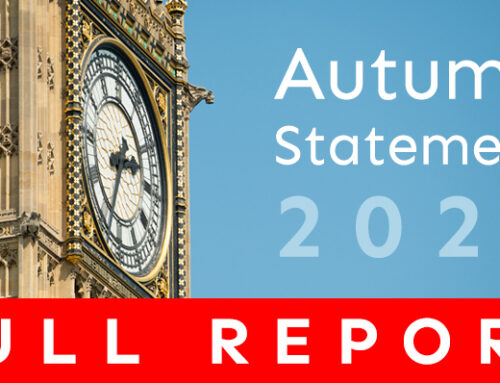What is a Limited Company?
Congratulations on starting your new business venture! Whilst you’re probably busy getting everything ready and sorted, one important thing to consider is your business accounting and more importantly, your business structure. But how do you know which is the right one for you?
In this blog we look specifically at a Limited Company and what it means to be ‘limited’.
What is a Limited Company?
A Limited Company is a separate legal entity in its own right from your personal finances, and therefore keeps your liability completely separate. Because of this it’s often said to be one of the safest and tax efficient methods of running a business, as should the company get into any trouble then its directors are only liable by their shareholding.
How is a Limited Company formed?
When you form a limited Company you have two types of individuals listed, directors and shareholders. As a director you’re classed as an employee of the Limited Company and it’s your job to manage the daily running of the business, and as a shareholder you’re the owner of the company itself. It’s common for a Limited Company owner to be both a shareholder and director, and for a Limited Company to have more than one shareholder.
When forming a Limited Company you must complete the following steps:
- Choose a business name – you’re able to pretty much choose whatever name you like, so long as it’s not sensitive, abusive or illegal. You’re also not allowed to choose trademarked words, or names which suggest any connotations with the Royal family. For more guidance on what you can and can’t use for your company name, take a look at the gov.uk website.
- Decide on your company structure – will you have more than one director and shareholder, or will it just be you? Maybe you have a spouse you’d like to bring on board? You’ll also need to consider what share structure each member of the company has. For example those with 25% shares and over will have greater control than those with less shares.
- Prepare your legal documents – You must submit documents known as the ‘Articles of Association’ or the ‘Memorandums of Association’. These are formal documents which explain to Companies House how you plan to run your company, and who will be shareholders. Your accountant will be able to help and advise you on this.
- Understand what records you’ll need to keep – You’ll need to keep a copy of your company’s incorporation certificate, legal documents, insurance policies, bank statements, invoices, etc.
- Set-up a separate business bank account – When Limited you should open a separate business bank account. This helps keep all your transactions separate, and makes it easier to complete your self-assessment tax return. Again, your accountant will be able to advise you on this process.
- Register your company with Companies House – You’re only able to register your company through Companies House. You must provide an address which will be publically visible, along with your personal details. You must also register your company with HMRC to ensure you’ll be taxable on future profits.
What are your responsibilities as a Limited Company director?
- Maintain and keep the company’s records and report any changes
- File your company accounts along with your Company Tax Return
- Pay Corporation Tax
- Inform any other shareholders of any company profits
Corporation Tax
Any Limited Company in the UK that makes a profit must pay Corporation Tax, which is a tax paid on annual profits in a tax year, and is paid in the same way as income tax for PAYE sole traders and employees.
At present CT is 19%, and due to increase to 25% from April 1st 2023 as a result of the COVID-19 pandemic.
Paying yourself – salaries and dividends
As a director of your Limited Company you’re also considered an employee of the company, therefore for the purpose of taxation you’re able to take a salary from the company.
Also as a shareholder you’re able to take dividends from the company. Your accountant will be able to advise you on the most tax efficient way to pay yourself using a mixture of salary and dividends from your Limited Company.
Company Benefits
Any benefits you take from your Limited Company, such as a car, phone, employer pension contributions, etc must also be considered and included in this bracket. Typically these types of benefits are taxable at their income rates, but some are exempt.
For example, a mobile phone given to an employee without any usage restriction for private or business use, is a tax-free benefit, so long as only one phone has been provided. All employer pension contributions are also exempt from taxation.
Director’s Loan Account
A Director’s loan account is created by shareholders of the Limited Company putting money in and out of their company. This money is not considered a dividend or salary, nor is it classed as money you’ve previously paid into or loaned to the company.
If you owe money to the company and are considered overdrawn, or if the company owes you money, there may be tax implications. Your accountant will be able to advise you further on this based on your own personal circumstances.
Allowable expenses for Limited Companies
Any expenses you wish to claim for your Limited Company must have been wholly and exclusively for usage during the day-to-day running of your business. You are not allowed to claim for any business expenses whereby there’s both business and personal usage. To help keep expenses separate it’s best to make any purchases using your business bank account.
Limited Company deadlines
There are a number of filing deadlines which you much adhere to in order to maintain your reporting and tax obligations when running your Limited Company:
- File your first accounts with Companies House – you must complete this 21 months after the date you registered your Limited Company with Companies House
- File your annual accounts with Companies House – This must be completed 9 months after your company’s financial year end
- Pay Corporation Tax or inform HMRC that your Limited Company doesn’t owe any – 9 months and one day after your ‘accounting period’ for Corporation Tax ends
- File a Company Tax return – 12 months after your accounting period for Corporation Tax ends
- File your Confirmation Statement – Your 12 month review period begins on either:
– The date your company was incorporated
– The date you filed your last Confirmation Statement – which must be filed within 14 days of the end of your review period
How Assure Accountants can help
Here at Vantage we help small business owners like you reach your business and personal financial goals while helping you keep more of your profits and ensuring you’re compliant. Our team of specialist Limited Company accountants are here to help, from getting your company set up to guiding you with expenses and your obligations as a director. Get in touch today to speak to one of our team, or find out more about how we look after Limited Companies.




